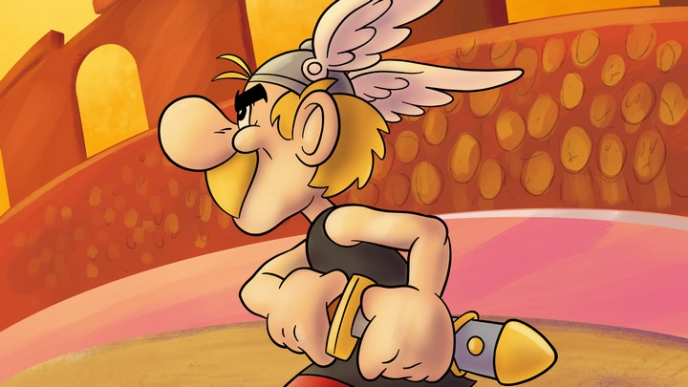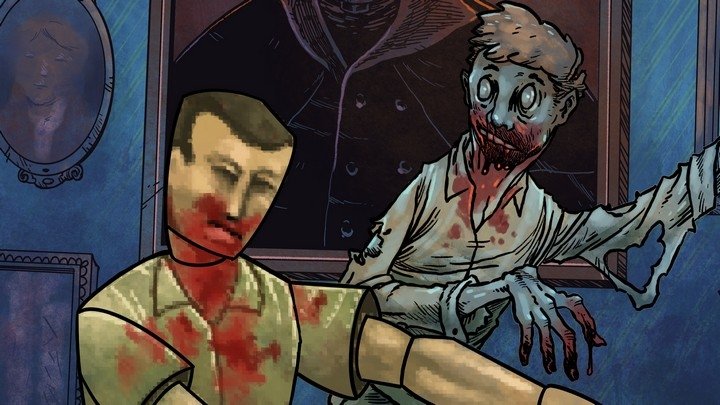The ultimate NES gets a Super follow-up — and this one's priced to sell
Analogue Co. announces the Super Nt.
The Analogue Nt mini clone console, without question, offers the single most impressive NES experience I've ever enjoyed… though it comes with a significant caveat. Not only does the Nt mini provide a near-perfect hardware simulation, it also contains an enormous variety of game presentation features; it supports both NES and Japanese cartridges; and it can be semi-officially jailbroken to play games for an enormous number of other 8-bit systems ranging from the common (SEGA Master System and Game Boy Color) to the esoteric (Watara's SuperVision and Entex's Adventure Vision).
The problem, unfortunately, comes down to finances: At $449, the Nt mini costs as much as a PlayStation 4 Pro bundle. While that price made sense for me personally — I use an Nt mini for both NES Works game capture and live streaming — I also realize there aren't a lot of people in the world who make their living playing NES games. Analogue Co. has positioned the Nt mini as the Cadillac of retro gaming hardware, and it absolutely is, but the vast majority of people need to collect NES games on Toyota coupe budgets.
This qualifier appears to have been on Analogue's mind as they embarked on their latest project, the Super Nt. As the name suggests, the Analogue Super Nt follows up on the NES-compatible Analogue Nt mini with a cloned rendition of Super NES hardware. As with the previous system, the Super Nt will run on a field-programmable gate array (FPGA) that attempts not to play Nintendo's 16-bit library via software emulation but rather through hardware simulation. Although the Super NES hardware had a notoriously complex setup under its hood, the Super Nt's use of an FPGA approach means that once the console's internals are simulated, it should run everything properly and authentically. As with the Nt mini, the new system's FPGA is being engineered by Kevin "kevtris" Horton, who has dedicated himself to preserving game history by perfecting FPGA renditions of every game console imaginable. His work on the Nt mini's various cores was very nearly flawless, which bodes well for the Super Nt.
Perhaps most importantly, Analogue will be pricing the Super Nt at a price that should sit well within the budgets of most dedicated retro gamers: $189. That puts it in line with RetroUSB's excellent (but considerably more limited) AVS Nintendo Entertainment System clone. It's also not too far above the going aftermarket/scalper price for the Super NES Classic Edition, yet should offer vastly better game compatibility… and all without the need to hack the hardware.

The Super Nt will come in a compact form factor just wide enough to hold an actual Super NES or Super Famicom cartridge — an even more diminutive device than the "junior" Super NES model Nintendo shipped late in the console's life cycle. In addition to shells intended to evoke the American Super NES and Japanese/European Super Famicom consoles, the Super Nt will also ship in black and transparent models. While the console won't include a controller in the box, presumably to keep the price low, it will support both original Super NES and Super Famicom controllers through physical ports on the front of the machine in addition to including out-of-the-box compatibility with 8bitdo controllers.
Analogue claims 100% support for the entire Super NES and Super Famicom library. Most significantly, the audio appears to be spot-on. While the proof will be in using the actual hardware, the early audio samples Analogue has shared sound indistinguishable from the actual hardware.
"Our goal with the Super Nt was to produce a sub-$200 FPGA SNES that sacrifices none of the critical features or quality of what Analogue is known for," says Analogue's Christoper Taber. "We've gotten thousands of emails over the years from people who want try our systems but can't afford $450.
"The Nt mini was always intended to be the be-all-end-all holy-grail kind of product. We wanted it to be able to do everything in HD and analog, plus the aluminum enclosure. In addition, this was when we were first developing our core hardware and FPGA implementation. The Super Nt price tag is only possible from the development we've done in the past… everything we do is proprietary. We're at a point where we can make what we've developed available at a better price because we've already invested the time and money into it.
"The PCB in the Super Nt is virtually the same PCB used in the Nt mini; literally everything is the same, minus analog AV. Same Altera FPGA chip.... every single piece of the product is still designed and manufactured by Analogue."
The common hardware shared by the Nt and Super Nt opens up a good many possibilities that Taber won't comment on yet. The Nt mini's jailbreak-based abilities didn't come to light until shortly after the console's launch last winter and have never been a key marketing point for the system. This wink-wink approach likely reflects the grey area the jailbreak involves; though there's been talk that Horton will be producing physical adapters to allow non-NES games to run on the Nt mini from actual cartridges, for the moment those other systems only work as ROMs… which are not technically illegal, of course. But it's unlikely anyone using the Nt mini's expanded feature set has entire libraries of GameKing carts they've personally dumped for use on the system.
In theory, the Super Nt could be jailbroken to support the Nt mini's cores (including NES and Famicom). Analogue's new console could ultimately prove to be a Trojan horse to sneak an NES-compatible device into the market at a budget-friendly price point. It would also seem reasonable to expect Analogue might add Super NES compatibility back into the Nt mini as a bone for its existing "premium" customers. For the moment, though, Taber won't speak to plans beyond the Super Nt's announced feature set. "The Super Nt's basic structure is identical to the Nt mini, so [there's] lots of opportunity for cool things," he says. In any case, the Super Nt includes an SD card slot similar to that of the Nt mini, which means a backdoor for future updates exists… however Analogue chooses to make use of it.

"We've been working on developing just the FPGA part for 14 months, virtually 24/7," says Taber. "But it's perfect. Literally 100% perfect. We tested 100% of the library; zero issues. Nobody has made a complete FPGA SNES before. [It's] easily 10 times as complex as an FPGA NES, like the Nt mini.
"Kevin joined Analogue full time late last year. He's been working on the SNES FPGA core for the last 14 months — a mind-blowing amount of work and effort into just that single aspect of the product."
The Super Nt's spec sheet adds up to impressive-looking system. Even if the company never adds support for additional console cores, a device capable of accurately playing the entirety of the Super NES and Super Famicom library in high definition has enormous appeal. Ultimately, the system as it's been announced has only a single eyebrow-raising omission: It doesn't provide any sort of analog-out feature. The Super Nt includes only a HDMI port, with a lowest supported resolution of 480p. Classic game enthusiasts hoping to use the Super Nt on a CRT monitor will have to add some sort of downscaling device to their setup, unless they're fortunate enough to have access to one of those rare CRTs capable of supporting 480p video.
Taber admits that analog video was a necessary (if somewhat ironic) casualty of the drive to a sub-$200 price point. "Super Nt is HDMI only," he says. "No analog out. The original SNES and SFC output RGB natively and are pretty reasonably priced, so it wouldn't really be offering much [from a perservation standpoint] to incorporate analog output. It increases the price substantially, and we wouldn't have been able to keep it under $200.
"If enough people are interested in having analog out, we'll make a limited edition with one. Otherwise, it's identical to the HDMI output on the Nt mini."
Analogue has not announced an exact launch date for the Super Nt, but I'd assume early in 2018; Taber tells me he'll be living in Hong Kong through the end of the year to act as midwife to the manufacturing process. Preorders should be open shortly on Analogue's website.




